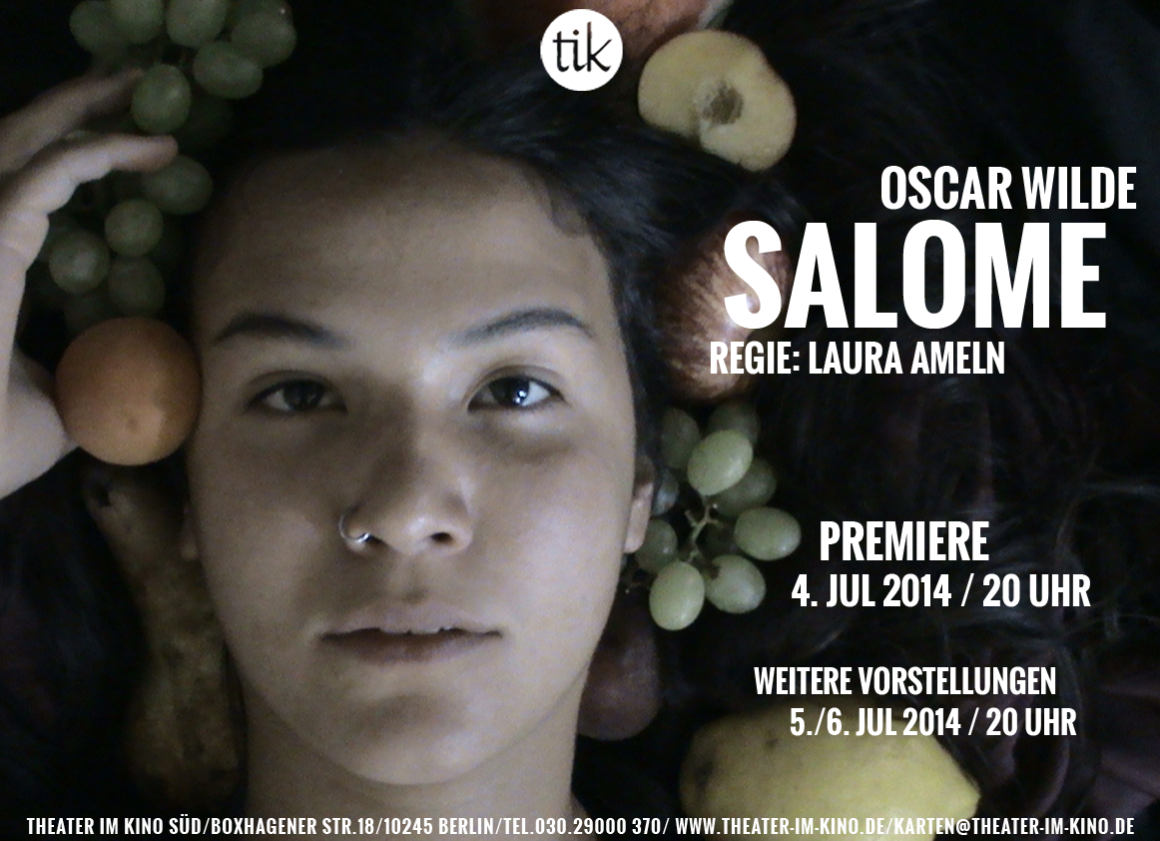es spielten:
Lua Barros-Heckmanns als SALOME
Laura Ameln als SALOME
Eleftheria Sokratous als KING HERODES
Dwayne Pierre als QUEEN HERODIAS
Maximilian Poth als IOKANAAN
Clara Bernhardt als CHOR
Deborah Darritchon als CHOR
Evie Howard als CHOR
Christin Arencibia Villa als Sprecher
Tanya Gryniva als Sprecher
Karl Kelschebach als Sprecher
Tatjana Kranz als Sprecher
Man stelle sich vor eine Welt der Leiblichkeit. Leiber sind gleichzeitig Ware und Währung. Leiber werden ertüchtigt und entstellt, geschmückt und gemästet. Der Leib ist gleichzeitig Mittel der Äußerung und des Begreifens. Der Leib ist das Einzige, was zählt. Man stellesich vor die Schönheit einer solchen Welt, und ihre Grausamkeit.
Man stelle sich vor in dieser Welt einen Menschen: ein Geschöpf bestehend aus einem Leib und einem Geist, einem Körper und einer Stimme, einem Empfinden und einem Denken. Man stelle sich vor seine Schönheit, und seinen Schrecken.
Oscar Wildes Fin-de-Siècle-Drama um die biblische Prinzessin Salome, deren Verlangen nach dem Leib des Propheten Jokanaan tödliche Ausmaße annimmt, wird zu einem Tanzstück der besonderen Art, in dem der Text zu Musik und die Handlung zum Tanz wird.
Imagine a world of corporeality. Bodies are commodity and currency at the same time. Bodies are exercised and deformed, adorned and fattened. The body is at the same time a means to express as it is a means to understand. The body is the only thing that counts. Imagine the beauty of such a world, and its terror.
Imagine in this world a human being: a man consisting of body and mind, corporeality and voice, feeling and thinking. Imagine his beauty, and his terror.
Oscar Wilde’s fin-de-siècle drama about the biblical princess Salome and her fatal longing for the body of the prophet Iokanaan is turned into a special dance piece where words become music and actions become dance.

